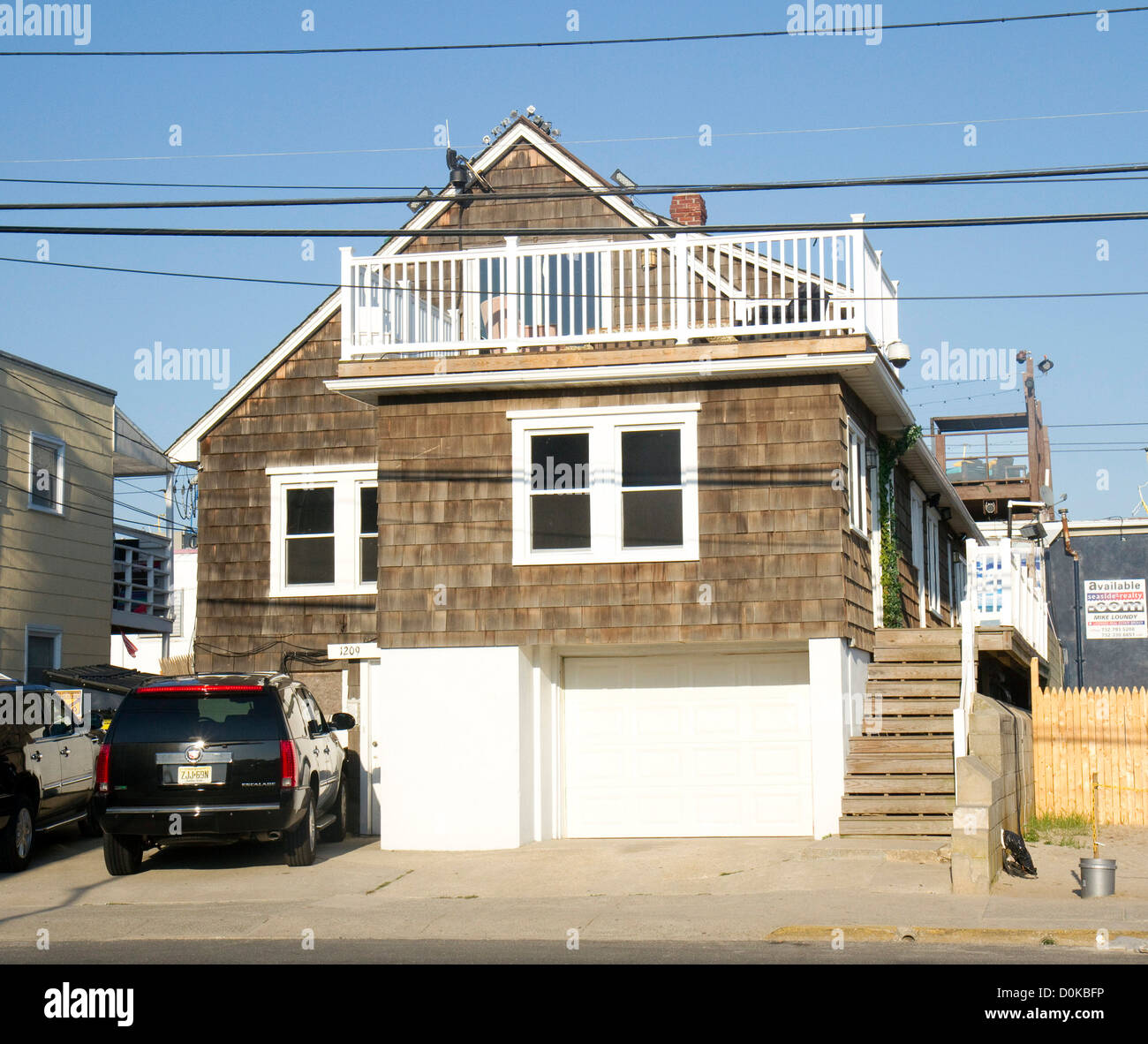In recent weeks, the iconic ‘Jersey Shore’ house has once again found itself at the center of a contentious protest, drawing attention not just to reality television culture but also to the socio-political undercurrents that pervade the seaside town of Seaside Heights, New Jersey. This polarizing event serves as a microcosm of the broader societal tendencies that turn trivial aspects of pop culture into powerful symbols of resistance and contemplation.
When MTV introduced ‘Jersey Shore’ to the world, it became a cultural juggernaut, captivating audiences with its portrayal of flamboyant personalities, hedonistic revelry, and an unabashed celebration of youth. However, the series also engendered a duality, inciting criticism regarding its representational authenticity and perceived exploitation of regional identity. The recent protests surrounding the house are emblematic of a deeper intrigue; they reflect a burgeoning concern about gentrification, cultural appropriation, and the commodification of local traditions.
The ongoing unrest can be traced back to the residents’ sentiments about the heavy commercialization that ‘Jersey Shore’ has precipitated in Seaside Heights. Once a relatively obscure beach town, its exposure through reality television altered the landscape dramatically. Locals argue that the influx of tourists and the rise of trinket shops have irrevocably changed the character of their community. In their eyes, the house is not merely a filming location; it stands as a physical embodiment of the invasive nature of fame and the erosion of local culture.
Moreover, the protests reveal a fascinating observation about human nature and its relentless pursuit of belonging. As people cling to the familiar in an increasingly ephemeral world, they simultaneously grapple with the paradox of watching their own identities become spectacle. The house symbolizes a bygone era, yet simultaneously, it is a contentious battleground for the preservation of authenticity against the relentless tide of manufactured reality.
What fuels this fascination? Perhaps it arises from the inherent allure of juxtaposing glamour with struggle. Is it the voyeuristic pleasure derived from observing others’ lives played out for entertainment, or is it a profound recognition of the fragility of community amid the onslaught of modernity? The fascination with ‘Jersey Shore’ transcends mere entertainment; it embodies the complexities of cultural narrative and the power dynamics at play within them.
Thus, the protests surrounding the ‘Jersey Shore’ house are more than just an outcry against commercialization; they are emblematic of a larger conversation on identity, culture, and the painful tensions that arise as communities adapt to evolving realities. As the cultural landscape shifts, so too must our understanding of how deeply intertwined our lives are with these narratives. The ‘Jersey Shore’ house may stand as a monument to one era, but it is also a poignant reminder that every transformation echoes with the voices of those who have been marginalized by the tide of change.
